HS-LS4-5
Evaluate the evidence supporting claims that changes in environmental conditions may result in: (1) increases in the number of individuals of some species, (2) the emergence of new species over time, and (3) the extinction of other species.
-
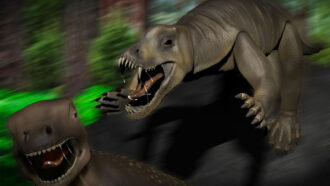 Fossils
FossilsAn ancient hippo-sized reptile may have been a speedy beast
An Anteosaurus was a hefty reptile with a large snout. Its fossil skull hints that it may have moved fast for its time.
-
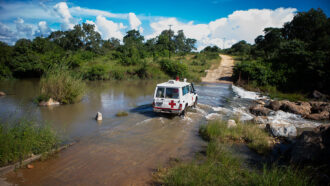 Health & Medicine
Health & MedicineBringing COVID-19 vaccines to much of world is hard
The price of not vaccinating nearly everyone across the world could be a longer pandemic and more troubling variants of the new coronavirus.
-
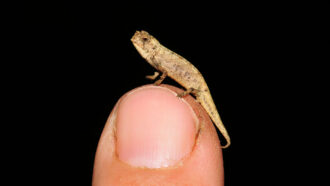 Animals
AnimalsA new chameleon species may be the world’s tiniest reptile
The newly described reptiles live in the northern forests of Madagascar. Deforestation there may also leave them on the brink of extinction.
-
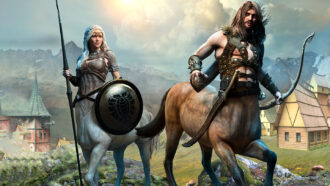 Animals
AnimalsHow do you build a centaur?
A centaur has the torso of a human and the body of a horse. It may sound cool, but it wouldn’t work very well.
-
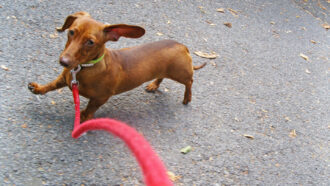 Archaeology
ArchaeologyHarsh Ice Age winters may have helped turn wolves into dogs
In the Ice Age, Arctic hunters may have turned to some game for their fatty bones. Much of those animals’ meat might have been left to domesticate dogs.
By Bruce Bower -
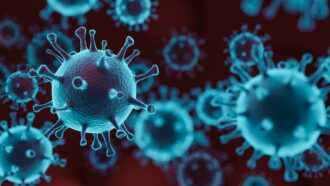 Health & Medicine
Health & MedicineEarly details emerge about the new U.K. coronavirus variant
The variant may spread more easily from person to person. That could make continuing to wear masks all the more important, experts say.
-
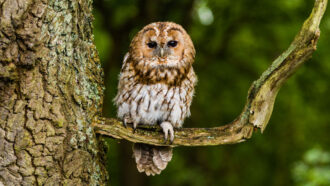 Genetics
GeneticsScientists Say: Evolution
Evolution is how species change over time. Individuals in the group vary, and some will pass on their genes. Over time, the whole species changes.
-
 Chemistry
ChemistryStinky success: Scientists identify the chemistry of B.O.
They turned up the enzyme in bacteria behind that underarm stench. Understanding how it works could pave the way to new types of deodorant.
-
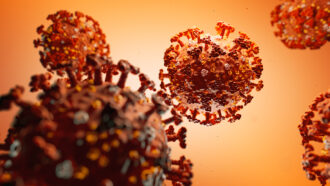 Health & Medicine
Health & MedicineA Hong Kong man got the new coronavirus twice
His is the first confirmed case of reinfection with this virus. His second bout was detected by accident, because he showed no symptoms.
-
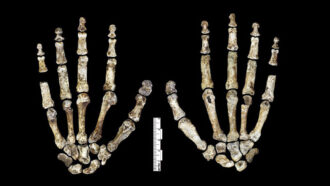 Humans
HumansLet’s learn about early humans
Homo sapiens are the last member left of our genus. But many other species of early humans existed before us.
-
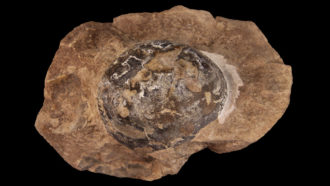 Fossils
FossilsEarly dinosaurs may have laid soft-shelled eggs
Scientists for the first time have turned up evidence of fossils from soft-shelled dinosaur eggs. This has scientists rethinking how dinosaur eggs evolved.
By Jack J. Lee -
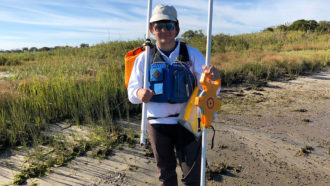 Science & Society
Science & SocietyFor teens, big problems may lead to meaningful research
Several teens who competed at the Regeneron Science Talent Search applied their STEM know-how to solve problems they or their communities faced.